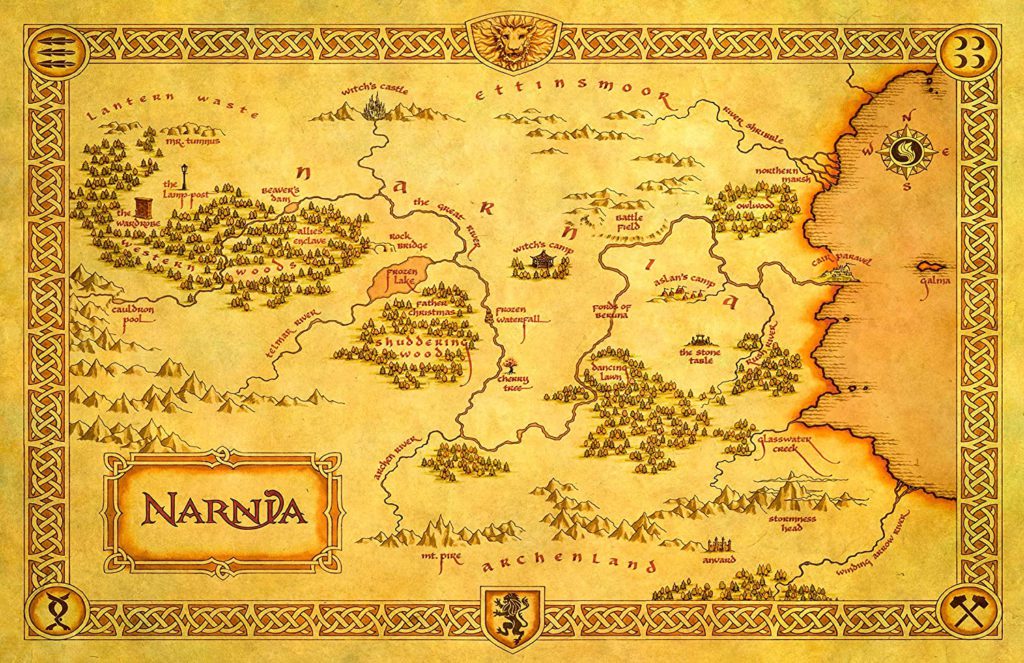8 Things to Keep in Mind When Creating a Fantasy World

Fantasy is one of the most celebrated genres of fiction spanning across various forms of media and especially shining in video games. Novels of the fantasy genre have their own devoted fan-following with readers thoroughly knowledgeable of the fantasy land that they so admire. Fantasy worlds like the ones in Game of Thrones and Lord of the Rings are common knowledge to not only devout fans of the stories but also to anyone living in the 21st century. The brilliance of these writers is duly reflected in their plots, characters, and most importantly, in the unearthly worlds that they have come to be so infamously known for. To be a fantasy writer means to possess creativity that goes beyond the bounds of this world… no, literally. So, before you move on to settling the nitty-gritty of your plot or figuring out the persona of your characters, what you really have to focus on is getting your fantasy world right. It must not only be fantastical but also immensely believable to your readers. If you’re still figuring out where to get started and how to go about constructing what of the land in your head, here are the things you need to make sure you have planned out:
- Geography & Topography
The very first thing that you need to have planned out is the physical world itself of the fantasy land. Your story can be centred around the happenings of one region or of just one country – either way, you need to build the geography of the land and clearly define every aspect of it. Figure out how many continents/countries exist, and where the lands lie and the seas begin. Obviously, each of these places cannot have the same kind of vegetation or climate. Perhaps, one region is extremely hot while the other one is frozen throughout the year. Map out how each country looks on the whole and what their defining topographical features are. These are especially important because they help define other aspects of the world such as the occupations of the populations, their food habits, or something even seemingly irrelevant like the architectural style of their houses.
2. Maps
Sure, you can visualize the lay of your land in your head, but there’s only so much explaining through words that you can do to help your readers imagine it as well. Most fantasy novels begin with a map of their lands to help readers identify exactly where each area is located. This helps solidify the physical land of your story and aids in detailed visualization of the world… almost as if it’s real!

3. Origin
Maybe there was a cosmic explosion because of which the planet on which your people live came into existence or maybe the tears of some ancient being fell on the land upon which your country came to be constructed. Whatever the reason may be, it is important that you have an origin story to your fantasy world. Especially if it is relevant to the story and even if it is for your own reference!
4. Populations
Now that you’ve perfected the lands and the seas, it’s time to decide what kind of people live on them. Your populations can be just plain humans in a magical land, or they can be human-like beings such as elves or those completely made up by you. Further, your protagonists need not be anything close to a human at all! Either way, remember that you cannot have any one type of population exist in your world. Seeing how it’s a large land, surely there are more races that exist. A couple of them can even be alien compared to the human-like people that you create. Get imaginative and make it diverse
5. History & Timeline
Your world can’t be one that popped into existence two days ago. There need to be generations of history to the lands and the people that you construct. Write out the Golden Ages and/or the Dark Ages, add in some wars or political conflicts that are significant to the history of the people – these make your world more established because they have a history. Additionally, write out a timeline leading up to the point at which your story occurs. There must be reasons as to why your story is set at the time that it is. Is there a civil war brewing, is a prophecy about to come to life, or has there emerged a looming danger that will blow your world to pieces? Figure out what kind of calendar your people follow and how long the days and nights are, and when the sun and moon emerge and how relevant they are to your people in keeping time. A fantasy world is not complete without generational backstories or a proper time construct to support it.
6. Laws & Rules
The soul is the centre of magic and exists outside the body in the form of an animal in Philip Pullman’s His Dark Materials, or more popularly known through the film adaptation, The Golden Compass. There are strict rules to how magic can be used and laws to punish those that defy the rules of magic. Every fantasy land requires its own set of rules. Sure, because the world is not set in reality, it’s not governed by the usual rules and regulations. But that doesn’t mean that it doesn’t have its own laws that are fundamental to how its people live. Though you have the creative license to build any kind of rules for your world, you need to keep in mind that it cannot be illogical. Even by being imaginative, there must exist a grounded logic out of which these rules emerge. Maybe there’s good and evil magic, maybe there are different objects that embody the magic and cannot be coveted, or maybe there exists a magical contract about which people can use which type of magic – whatever the rules may be, they must be rooted in sound logic.
7. Political, Cultural, and Social Systems
While rules and laws define how magic and other primary fantasy elements are treated in the land by all the people as a whole, political, cultural, and social systems lay the framework for how different people live their day-to-day lives and what their customs are. While laws are common to everyone in the world, these systems differ from population to population. Sure, the people your protagonist is from is a warrior race but what do they like to do in their downtime? Do they sit around and drink ale like the Hobbits from The Shire or do they enjoy a random good festival centred around magical mushrooms? Similarly, how are the people governed in different countries? Do they have monarchs or is there a more democratic political system in place? How does the economy function? Do people barter or do they have gold as their currency or something entirely new that is unique to their world? Though most fantasies tend to use gold as their default magical currency, the magical world of Harry Potter has its own galleons, sickles, and knuts with each having its own numerical value. Whatever the systems are, get specific and leave no end open. The more detail-oriented you become about the way life is in your world, the more believable and nuanced it will be to the readers.
8. Language
The most important of all! Ma’vi, Klingon, Dothraki, Elvish – these are all established fantasy languages that you can actually learn and communicate in. Emerging from fantasy lands and people as popular as them, the brilliance of these languages is reflected in the extent to which they are studied in modern literary academia. Your fantasy people require a language that uniquely expresses things of their own world. Sure, you don’t need to go all-in and become a linguist like with the popular fantasy languages, but you need to at least establish some unique terms. The selling point is to create slang that your characters use. Who do they call to when they curse? What words describe common things like foods? All these add to the building of the cultural aspect of your fantasy population.
The key to creating a functional and believable fantasy land is to be as detail-oriented as possible about it. When your readers have several elements that they can read into and create their own fiction about, they become hooked to the world and its characters that you weave. You definitely should not infodump every little fact about your world on your readers. Make it more organic, give each aspect and information its own pace and time to be revealed. Sure, you know all about the world that you’ve created, but that doesn’t mean that your characters do too. Make the revelation of mythologies or other facts as organic as possible to the story and not as if a random lecture arising out of nowhere.
In the end, you might not even get to tell the readers about most details that you created, but that doesn’t mean that you shouldn’t have them planned. They’ll only help you create a more authentic and logical fantasy plot. So, make sure you check the box of each of the items mentioned above and you’ll have yourself a truly magical world like no other!


